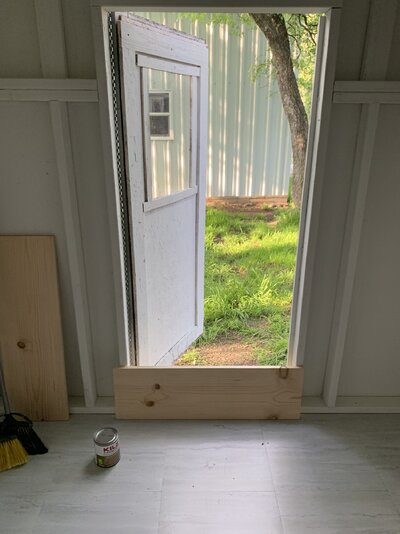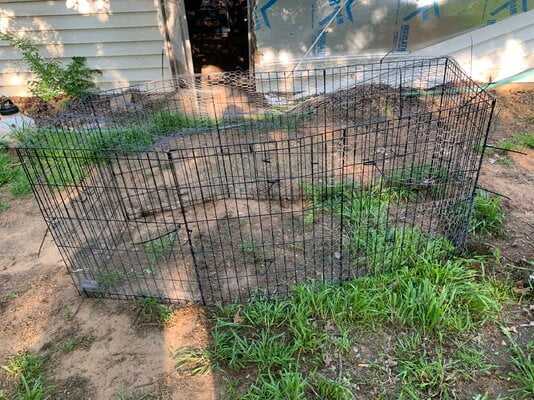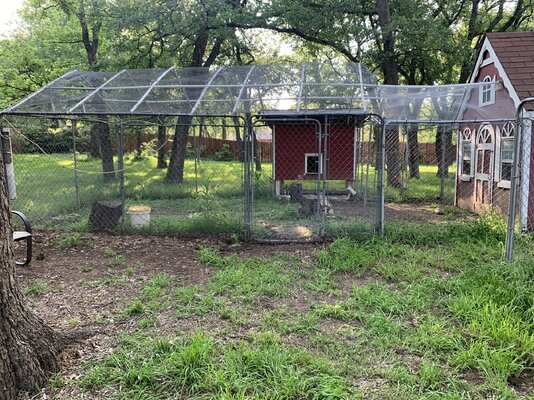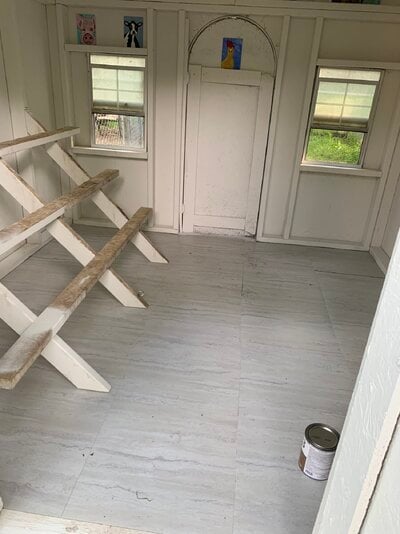My 9 babies are 18-22 ish days old. I would like to get these poop machines out of my craft room soon! Texas weather at the moment anywhere from 90-60 days and 40-50 nights. They are brooding inside and started with a heat plate and a hanging radiant heater. I removed the heat plate a few days ago because it was as high as it would go and they didn’t use it. Most nights they don’t sleep under the other one either. My coop is 8x8 and the run is huge. My plan was to move them to the coop around April 15 making them about 4 weeks old. I added some pics of my coop, run (the small coop you see in the run pic will be closed off for quarantine or chicken hospital) and the puppy pen they use for day trips outside. That is what I would use to section off the coop if you guys think I should. Here are my questions.
1. When do I change them from medicated starter to a grower feed? They have not been exposed to the run that my last flock lived in so they are fairly sheltered from outside “germs” so to speak
2. When I move them to the coop, should I section it off so they don’t have too much room? And should a heat source be provided? I plan to leave them locked in there for a week or so for them to get used to their new house before letting them out to the run.
3. Once I do let them in the run, how in the world to I get them to go back inside without having to chase them all over high heaven in that huge run.
4. Using deep bedding how do you handle food and water stations that they don’t get kicked over since they are to small to reach hanging feeders and obviously need clean water
5. Any other advice for getting these poop machines safely out of my house and into the new coop?
1. When do I change them from medicated starter to a grower feed? They have not been exposed to the run that my last flock lived in so they are fairly sheltered from outside “germs” so to speak
2. When I move them to the coop, should I section it off so they don’t have too much room? And should a heat source be provided? I plan to leave them locked in there for a week or so for them to get used to their new house before letting them out to the run.
3. Once I do let them in the run, how in the world to I get them to go back inside without having to chase them all over high heaven in that huge run.
4. Using deep bedding how do you handle food and water stations that they don’t get kicked over since they are to small to reach hanging feeders and obviously need clean water
5. Any other advice for getting these poop machines safely out of my house and into the new coop?








